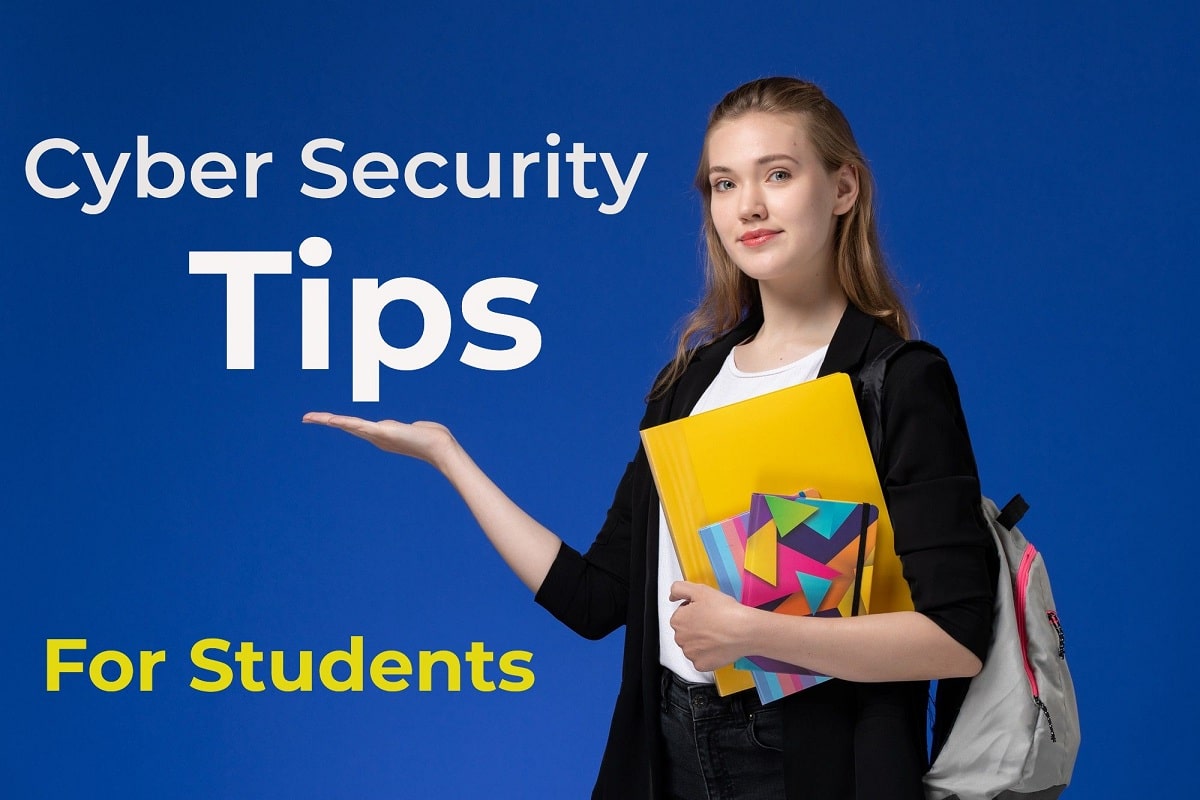
Cybersecurity is essential for students who increasingly rely on technology for studies, communication, and entertainment. Students often use various devices and online platforms, which can expose them to a range of cyber threats. Here are some cybersecurity tips specifically for students to help them stay safe online:
1. Use Strong, Unique Passwords
- Create strong passwords: Use a combination of uppercase and lowercase letters, numbers, and symbols. Avoid using easily guessable information like birthdays or common words.
- Use different passwords for each account: Don’t reuse passwords across different sites or platforms. If one account is compromised, others will still be safe.
- Use a password manager: Consider using a password manager to store and generate complex passwords. This way, you don’t have to remember every password, and they are kept secure.
2. Enable Multi-Factor Authentication (MFA)
- Add extra protection to your accounts: Enable MFA on all accounts that offer it (e.g., email, social media, and bank accounts). This requires a second form of verification (like a code sent to your phone) in addition to your password, making it harder for hackers to gain access to your accounts.
3. Be Careful with Phishing Scams
- Don’t trust unsolicited emails: Be cautious about emails from unknown senders or messages that ask for personal information. Check the sender’s email address carefully, as scammers often mimic legitimate organizations.
- Don’t click on suspicious links: Don’t click on links or open attachments in emails that seem suspicious. These could be phishing attempts designed to steal your data.
- Verify requests: If you receive an unusual request (such as asking for money or personal information), verify it by contacting the person or organization directly through official channels.
4. Keep Software and Devices Updated
- Install updates regularly: Ensure that your operating systems, applications, and antivirus software are up-to-date with the latest security patches. Cybercriminals often exploit vulnerabilities in outdated software to gain access to systems.
- Enable automatic updates: Whenever possible, set your devices to automatically install updates so you don’t miss important security patches.
5. Be Cautious with Public Wi-Fi
- Avoid using public Wi-Fi for sensitive activities: Public Wi-Fi networks (like those in cafes or libraries) are often not secure. Avoid accessing bank accounts, shopping online, or entering personal data when connected to public Wi-Fi.
- Use a VPN: If you must use public Wi-Fi, consider using a Virtual Private Network (VPN) to encrypt your internet connection, protecting your data from prying eyes.
6. Practice Safe Social Media Habits
- Limit personal information sharing: Be mindful of what you share on social media. Avoid posting sensitive personal information such as your address, phone number, or details about your schedule (like when you’ll be away from home).
- Review privacy settings: Regularly check the privacy settings on your social media accounts to control who can see your posts and personal information.
- Think before posting: Once something is shared online, it’s difficult to take back. Be cautious about posting anything that could be used against you in the future or damage your reputation.
7. Use Antivirus and Anti-malware Software
- Install antivirus software: Protect your devices from viruses, malware, and ransomware by installing reputable antivirus software.
- Perform regular scans: Run regular virus and malware scans to detect and remove any threats. Set your antivirus program to automatically scan at regular intervals.
8. Backup Your Data
- Backup important files: Regularly back up your essays, assignments, and other important documents to the cloud or an external drive to avoid losing them in case of a hardware failure, ransomware attack, or accidental deletion.
- Use cloud storage: Cloud services like Google Drive or Dropbox allow you to store data securely online, and you can access your files from any device.
9. Avoid Downloading Untrusted Software
- Download from trusted sources: Only download software, apps, and files from legitimate sources like official app stores or trusted websites.
- Check for reviews: Before downloading any software, look for reviews or feedback from other users to ensure it’s safe to use.
10. Beware of Online Scams and Fake Offers
- Don’t fall for too-good-to-be-true offers: Scammers often target students with fake scholarship offers, job postings, or “free” products. Always verify the legitimacy of any offer before providing personal information or payment.
- Research before clicking: If an online offer seems too good to be true, research the company or individual offering it. Legitimate organizations will have verified contact information and a professional online presence.
11. Secure Your Mobile Device
- Use a screen lock: Always set a strong PIN, password, or biometric lock (fingerprint/face recognition) on your mobile devices to prevent unauthorized access.
- Be mindful of app permissions: Check the permissions of apps before granting them access to your camera, microphone, contacts, or location.
- Install security apps: Install reputable security apps on your phone to protect against malware, phishing, and other mobile threats.
12. Avoid Oversharing in Online Classes or Discussions
- Be cautious when sharing personal info: When participating in online classes, discussions, or group chats, avoid sharing personal details (like your full name, address, or other identifying information) unless necessary.
- Understand platform privacy settings: Ensure you understand the privacy settings for the online platforms you’re using for coursework or communication. Some platforms may allow anyone to view or interact with your posts, so be aware of how public your information may be.
13. Secure Your Devices with Encryption
- Encrypt your devices: If possible, enable full disk encryption on your devices (laptops, phones). Encryption makes it more difficult for hackers to access your data if your device is lost or stolen.
- Use device finders: For mobile devices and laptops, enable “find my device” features so you can track or remotely wipe your device if it goes missing.
14. Avoid Clicking on Unknown or Suspicious Links
- Be cautious with links in emails or messages: Even if a link appears to come from a friend or trusted source, if it looks unusual, don’t click it. Hover your mouse over the link to see the full URL before clicking.
15. Understand the Risks of File Sharing
- Be cautious with file-sharing platforms: When using file-sharing services, be careful about what you share and who you share it with. Ensure that shared files are from trusted sources and scanned for malware before downloading.
- Use encrypted files for sensitive documents: If you’re sharing sensitive information (e.g., assignment results, research), encrypt the file before sending it.
Conclusion
Cybersecurity is an essential skill for students to master as they navigate the digital world. By following these tips, students can better protect themselves from cyber threats such as phishing, malware, and identity theft. Being aware of online risks and implementing proactive security measures can help keep personal data, academic work, and communication safe.




